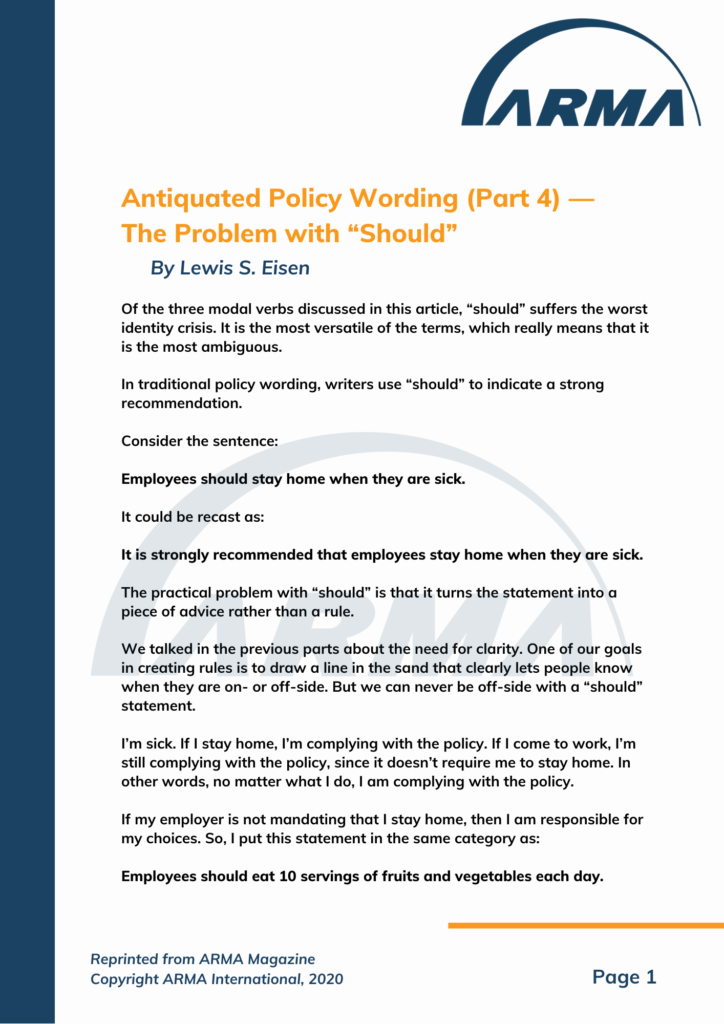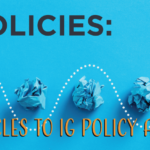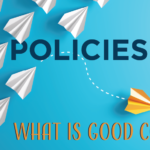Antiquated Policy Wording: Part 4 — The Problem with “Should”

This is the final article of a four-part series on drafting requirements in IM policies, looking at the problems of using the words “must,” “may,” and “should.”
Of the three modal verbs discussed in this article, “should” suffers the worst identity crisis. It is the most versatile of the terms, which really means that it is the most ambiguous.
In traditional policy wording, writers use “should” to indicate a strong recommendation.
Consider the sentence:
Employees should stay home when they are sick.
It could be recast as:
It is strongly recommended that employees stay home when they are sick.
The practical problem with “should” is that it turns the statement into a piece of advice rather than a rule.
We talked in the previous parts about the need for clarity. One of our goals in creating rules is to draw a line in the sand that clearly lets people know when they are on- or off-side. But we can never be off-side with a “should” statement.
I’m sick. If I stay home, I’m complying with the policy. If I come to work, I’m still complying with the policy, since it doesn’t require me to stay home. In other words, no matter what I do, I am complying with the policy.
If my employer is not mandating that I stay home, then I am responsible for my choices. So, I put this statement in the same category as:
Employees should eat 10 servings of fruits and vegetables each day.
Employees should drink plenty of water.
Employees should get a good night’s sleep.
It’s wonderful advice, but it’s just that: advice.
You will recall that we have two sets of documents in our framework: policies and guidance. A policy sets out the decisions of its approval body; the guidance restates them. The guidance can also explain, expand, suggest, recommend, and caution.
Consider the statement:
Employees should stay home when they are sick.
This is a recommendation and not a decision. Recommendations are not policy statements. They belong instead in your guidance documents, employee manuals, and wall posters.
Even when we set the policy/advice distinction aside, we still have the precise meaning of “should” to resolve. Like “must” and “may,” people use “should” for a variety of purposes. It might mean a strong recommendation as above, but sometimes it means something else.
Take, for example, this statement:
The fire extinguisher should be used only in emergencies.
Is that really intended as just a recommendation? There are two answers.
1. Yes, this is only a recommendation. If the company has no intention of enforcing this rule, then the statement is really no more than good advice. Let’s add it to the employee manual along with the fruits and vegetables.
2. No, this is a strict rule. This usage of “should” is the polite or “softened” form of “must,” used when we want to blunt a command by making it sound like a suggestion. Other examples of this usage are:
Passengers should pay their fare upon entering the bus.
and
The application should be signed at the bottom and returned within five days.
In neither of those examples is “should” intended to be a mere recommendation. It’s a soft “must,” governing a mandatory action that has been euphemized to make it sound less like an order. As you might expect, using “should” in this sense in policy documents is a recipe for disaster. Someone will inevitably interpret this “should” statement as a mere recommendation or suggestion.
But we’re not finished. The word “should” is a master of disguises. Look at this example:
Information should be accessible, current, and accurate.
This statement is neither a recommendation nor good advice. It’s intent is stronger than both of those meanings, but not as strong as a mandatory action. This statement sets out a target or, at best, a governing principle. Whichever it is, it’s a weak policy statement. It’s so general that it’s not clear what I can do to be compliant or non-compliant.
Other uses of “should” get farther and farther away from recommendations. Check out this example:
Reminders to clients of outstanding payments are sent out every Friday by noon and should arrive early the following week.
In this example, “should” expresses a probability or expectation. In fact, the second half of the statement doesn’t belong in the policy at all because it’s not a decision made by the approval committee. The committee can decide when reminders are sent out, but it can’t decide when they arrive. The second half of the statement belongs in the guidance that explains the policy.
Finally, look at this instance of “should”:
Should more information be required, the application is put on hold.”
Here “should” expresses a “possibility” or “eventuality,” almost a synonym for the word “if.” Such a versatile word! The list of meanings goes on and on.[1]
Summary
The word “should” varies in meaning, and can indicate:
- a strong recommendation,
- good advice,
- a requirement,
- a target or governing principle,
- a probability or expectation, or
- a possibility or eventuality.
Those statements are more appropriate for guidance documents. Even if you continue to use “should” in your policy documents to express recommendations, it would be helpful to eliminate all other instances of that word, to reduce the possibility of confusion. At the same time, you’ll be moving away from the Parent-Child dynamic.

View the PDF version of this article.
[ls_content_block id=”682″]
[ls_content_block id=”629″]
[ls_content_block id=”704″]
[1] E.g., “I should have said something to her at the time” is an expression of regret, rarely found in policy documents.
About the Author

- Lewis S Eisen, JD CIP SIPC is the developer of the Perfect Policies™ approach to using respectful language in policy drafting, which has been adopted in organizations around the world. His international bestseller Rules: How to Write Rules that People Want to Follow, is now in its third edition and is also available in French. Lewis draws on 40 years’ experience as a practising lawyer, business consultant, and federal civil servant. Lewis was the winner of the ARMA International Britt Literary Award in 2020.




